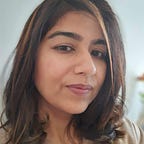Traditional Medicine
As a staunch follower in the healing power of traditional medicine, I believe it’s a commendable step by the WHO and the Government of India to establish the first of its kind Global Centre for Traditional Medicine in Jamnagar, India. It will pave the way further for decolonization of health system and representation of global south in the healthcare.
When the focus has already shifted from curative to preventive health, ancient wisdom provides us the tools and techniques to live a more holistic and balanced life. The cost effectiveness, cultural and regional acceptance, sustainability also makes the traditional medicine a viable option in the long run.
Acknowledging this cornucopia of ancient wisdom and providing support for research and evidence-based data will help integrating them into the modern health care techniques and set ups.
According to the WHO, around 80% of the world population uses traditional medicine. “For many millions of people around the world, traditional medicine is the first port of call to treat many diseases,” says Dr Tedros Adhanom Ghebreyesus, WHO Director-General.
Traditional medicine includes the knowledge, skills and practices used by indigenous and different cultures to prevent diseases and maintain health. It encompasses holistic therapies from ayurveda, Chinese Medicine to acupuncture and herbalism.
